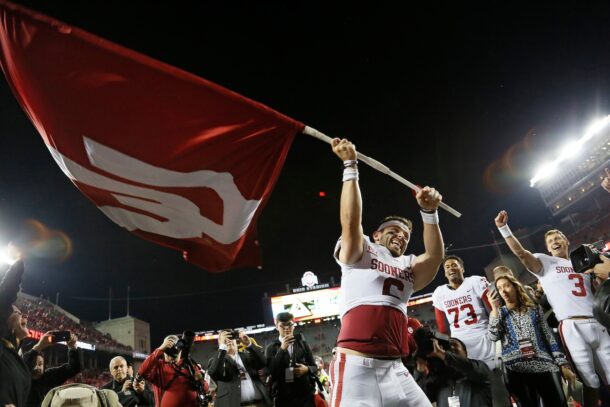Texas sports betting legislation is getting an unexpected push in 2021.
Recent news suggests that the phrase “everything’s bigger in Texas” will ring true when it comes to sports betting. Big states like California and New York are pushing forward with plans that equate to half measures.
Texas, on the other hand, is looking at the possibility of a groundbreaking plan that includes heavy backing from professional teams in the state. Chris Krafcik of Eilers and Krejcik Gaming, a leading gaming research and consulting company, is reporting draft legislation that would be massive for Texas.
Situation is fluid, of course, but 3 of the Big 4 States on very different tracks. CA likely to go retail only, NY currently tacking toward a lottery-regulated online model w/ a small number of operators, and TX angling toward a very broad online authorization.
— Chris Krafcik (@ckrafcik) January 20, 2021
This reported draft legislation hits on many of the features that can create a robust sports betting market in Texas — multiple skins, high license fees, and a strong 10% tax. This is exactly the kind of legislation that would foster competition, which is a major positive for Texans. Michigan online sports betting, which features similar conditions and great expectations, will launch this Friday. Such competition leads to increased consumer choice and it can ultimately weed out illegal bookies and offshore books from the market.
These are the broad strokes of the draft legislation, but this is only a start for Texas sports betting.
Ensuring state leadership, lawmakers, and stakeholders can come together on a plan that works is easier said than done.
Differing Plans In New York & California
Speaking of coming together on a plan, New York and California represent two states where there is still much work to be done on the sports betting front. Texas, New York, California, and Florida represent the “big four” when it comes to sports betting. They are the four biggest states in terms of population and they all have major professional sports franchises.
New York is currently at a crossroads. While state lawmakers and Governor Andrew Cuomo all want to make online sports betting a reality in New York, they disagree on how to move forward.
State Senator Joseph Addabbo Jr. is spearheading legislation that would include up to 14 skins, also known as licenses, for online sports betting operators. Gov. Cuomo is pursuing a plan that could limit the state to a single operator, thus limiting competition and consumer choice.
California is traveling down a path that would be even more restrictive than New York’s. Right now, the possibility of online sports betting is years away from becoming a reality in California. Instead, retail sportsbooks would be the only place Californians could place sports wagers.
New York currently only allows sports betting in upstate brick-and-mortar sportsbooks. The Empire State is a prime example of how limiting legislation to in-person sports betting cuts off major swaths of the population from joining in on the action. New York’s recent move to pass online sports betting shows that the retail-only sportsbook model is outdated. The vast majority of sports betting takes place from mobile devices.
Luckily, Texas is using the examples set by New York and California and forging ahead with a model closer to New Jersey’s wide-open market. This means that Texans will have a range of choices for mobile sports betting.
The Backing Of Professional Sports Teams
Again, it’s worth noting that Texas is still a long way off from passing sports betting legislation, but pressure from professional sports teams could help expedite the process. As Krafcik notes, the Cowboys and Mavericks are reportedly backing the current draft legislation.
It’s no surprise to see pro sports teams in Texas backing this draft legislation. Mavericks owner Mark Cuban has long been a vocal supporter of legalizing sports betting.
“It doubled the value of the professional sports franchises in a second,” Cuban said following the 2018 PASPA Supreme Court decision. “It will increase interest, it will add to what happens in our arena and in stadiums. It will increase the viewership for our biggest customers online and on TV. It helps traditional television because it’s much lower latency, whereas online, because of cachet, it’s much higher latency.”
Although it’s just the Cowboys and the Mavericks showing vocal support right now, there is no reason to believe the other teams in Texas would be opposed to this legislation. The potential for the state’s sports betting operation is massive and 2021 could be the year where we see legitimate progress in the Lone Star State.
A graduate of the University of Florida and founder of Saturday Down South, Kevin is a college football enthusiast.











